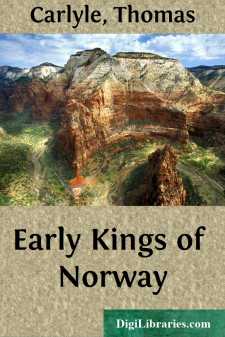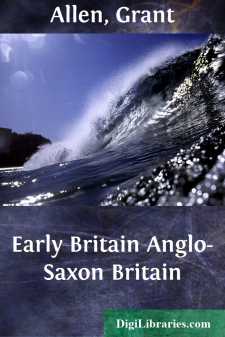History
- Africa 30
- Americas (North Central South West Indies) 50
- Ancient 68
- Asia 58
- Australia & New Zealand 8
- Canada 41
- Caribbean & West Indies 1
- Civilization 20
- Eastern Europe 12
- Europe 310
- Expeditions & Discoveries 60
- General 77
- Historical Geography 1
- Jewish 9
- Latin America 3
- Medieval 8
- Middle East 13
- Military 248
- Revolutionary 8
- Study & Teaching 5
- United States 353
- Western Europe 56
- World 13
History Books
Sort by:
ENGLISH A COMPOSITE LANGUAGE “A very slight acquaintance with the history of our own language will teach us that the speech of Chaucer’s age is not the speech of Skelton’s, that there is a great difference between the language under Elizabeth and that under Charles the First, between that under Charles the First and Charles the Second, between that under Charles the Second and Queen Anne; that...
more...
THE TUDOR PERIOD, 1485-1603 [Sidenote: An era of Revolutions] The historian of the future will, perhaps, affirm that the nineteenth century, with the last years of the eighteenth, has been a period more fraught with momentous events in the development of the nations than any equal period since the Christian era commenced. Yet striking as are the developments witnessed by the last four generations, the...
more...
CHAPTER I GENESIS OF ENGLISH COLONIZATION(1492-1579)Up to the last third of the sixteenth century American history was the history of Spanish conquest, settlement, and exploration. Except for the feeble Portuguese settlements in Brazil and at the mouth of the La Plata, from Florida and the Gulf of Mexico, around the eastern and western coasts of South America, and northward to the Gulf of California,...
more...
INTRODUCTION Behind any human institution there stand a few men—perhaps only one man—who direct its movement, protect its interests, or serve as its mouthpiece. This applies to nations. If we wish to know for what a nation stands and what are its ideals and by what means it seeks to realise them, we shall do well to know something of the men who lead its people or express their feelings. It is of...
more...
EMILY BRONTË. There are, perhaps, few tests of excellence so sure as the popular verdict on a work of art a hundred years after its accomplishment. So much time must be allowed for the swing and rebound of taste, for the despoiling of tawdry splendours and to permit the work of art itself to form a public capable of appreciating it. Such marvellous fragments reach us of Elizabethan praises; and we...
more...
by:
Karl Marx
I Hegel says somewhere that that great historic facts and personages recur twice. He forgot to add: "Once as tragedy, and again as farce." Caussidiere for Danton, Louis Blanc for Robespierre, the "Mountain" of 1848-51 for the "Mountain" of 1793-05, the Nephew for the Uncle. The identical caricature marks also the conditions under which the second edition of the eighteenth...
more...
by:
Edmund Flagg
CHAPTER I. STORM AND SHIPWRECK. The Count of Monte-Cristo, with the beautiful Haydée clinging lovingly about his neck, her head pillowed upon his shoulder, stood on the deck of his superb yacht, the Alcyon, gazing at the fast-vanishing isle where he had left Maximilian Morrel and Valentine de Villefort. It was just daybreak, but by the faint glimmering light he could plainly distinguish the figures of...
more...
by:
Thomas Carlyle
CHAPTER I. HARALD HAARFAGR. Till about the Year of Grace 860 there were no kings in Norway, nothing but numerous jarls,—essentially kinglets, each presiding over a kind of republican or parliamentary little territory; generally striving each to be on some terms of human neighborhood with those about him, but,—in spite of "Fylke Things" (Folk Things, little parish parliaments), and small...
more...
by:
Grant Allen
CHAPTER I. THE ORIGIN OF THE ENGLISH. At a period earlier than the dawn of written history there lived somewhere among the great table-lands and plains of Central Asia a race known to us only by the uncertain name of Aryans. These Aryans were a fair-skinned and well-built people, long past the stage of aboriginal savagery, and possessed of a considerable degree of primitive culture. Though mainly...
more...
by:
John Pinkerton
In the days of Plato, imagination found its way, before the mariners, to a new world across the Atlantic, and fabled an Atlantis where America now stands. In the days of Francis Bacon, imagination of the English found its way to the great Southern Continent before the Portuguese or Dutch sailors had sight of it, and it was the home of those wise students of God and nature to whom Bacon gave his New...
more...











